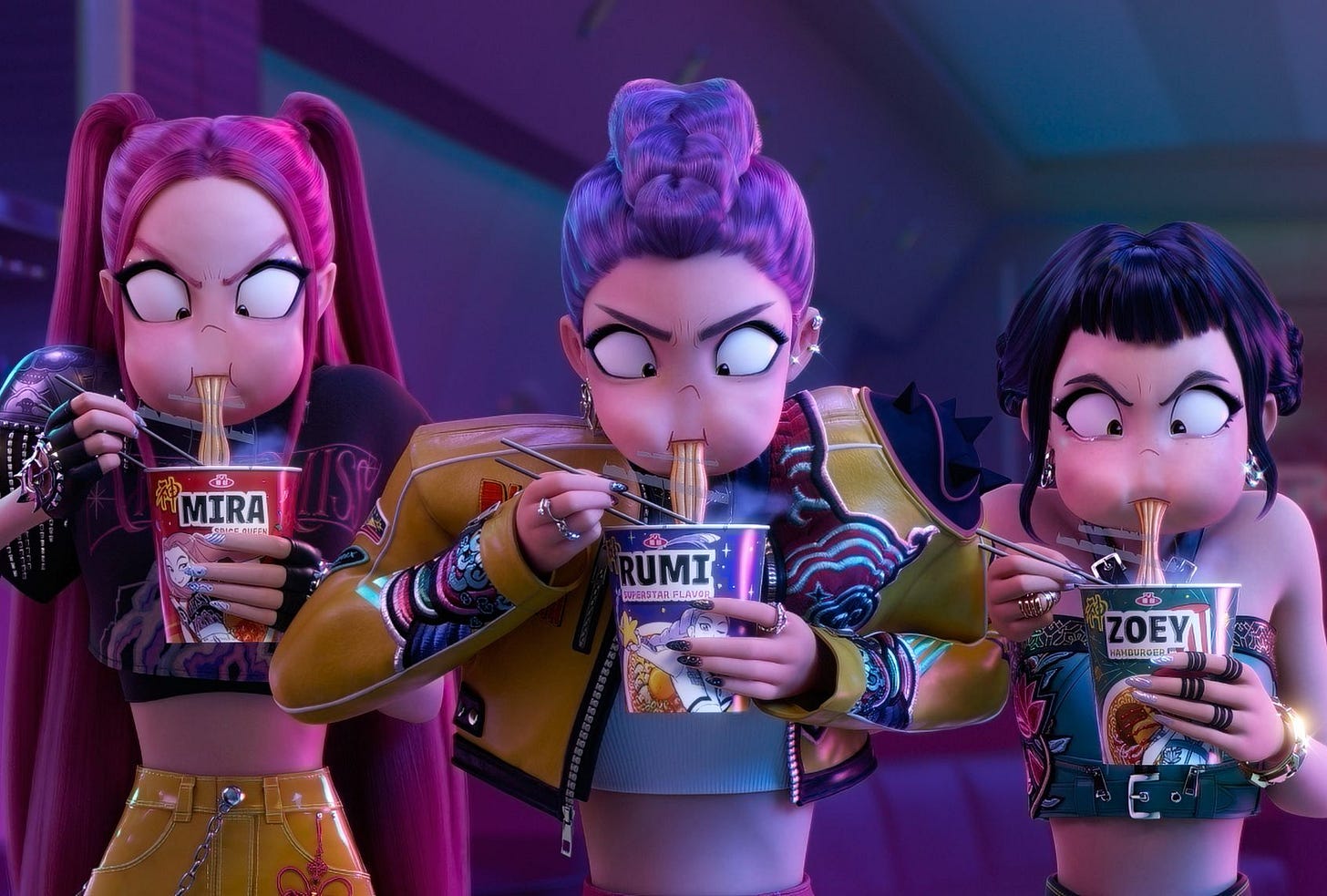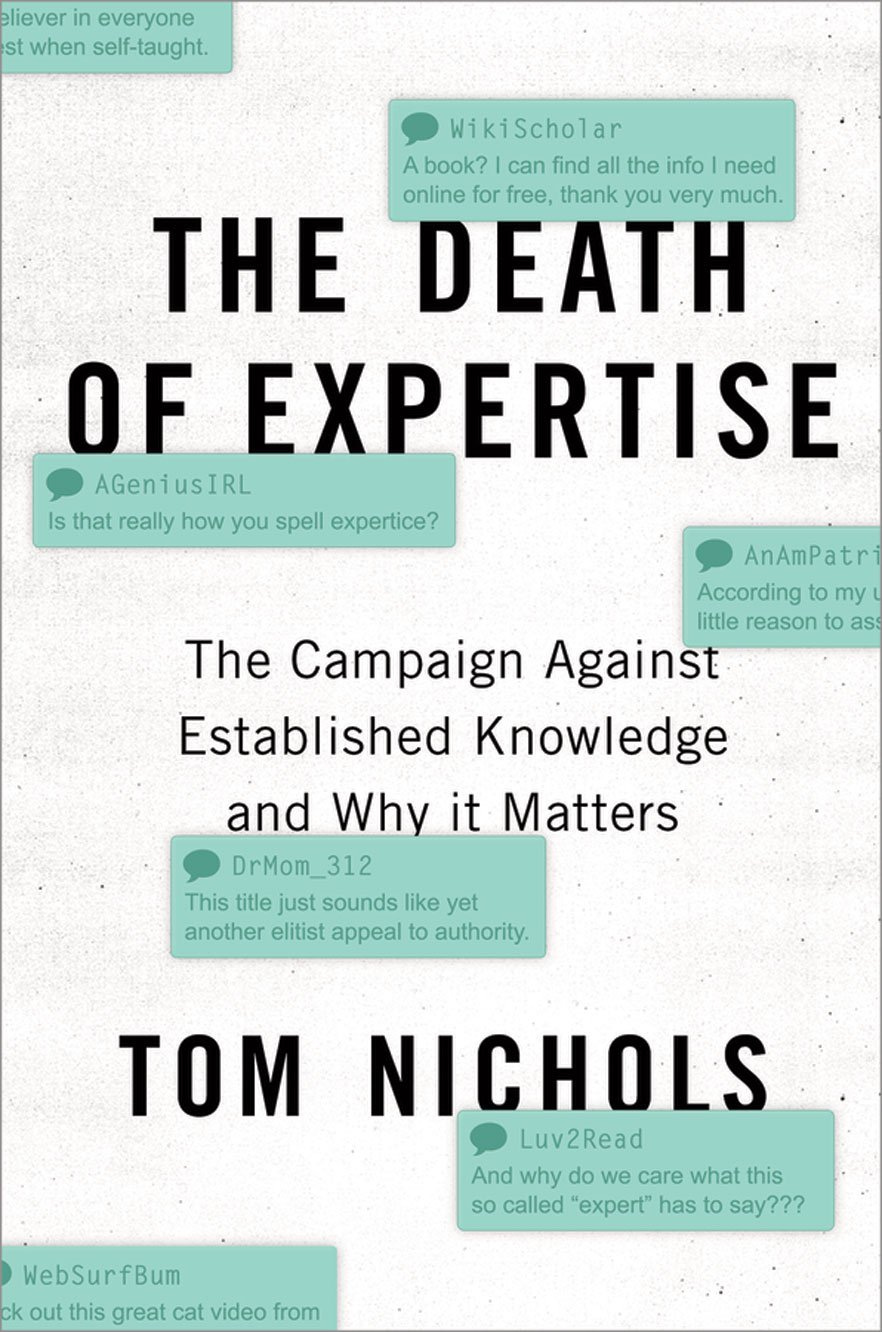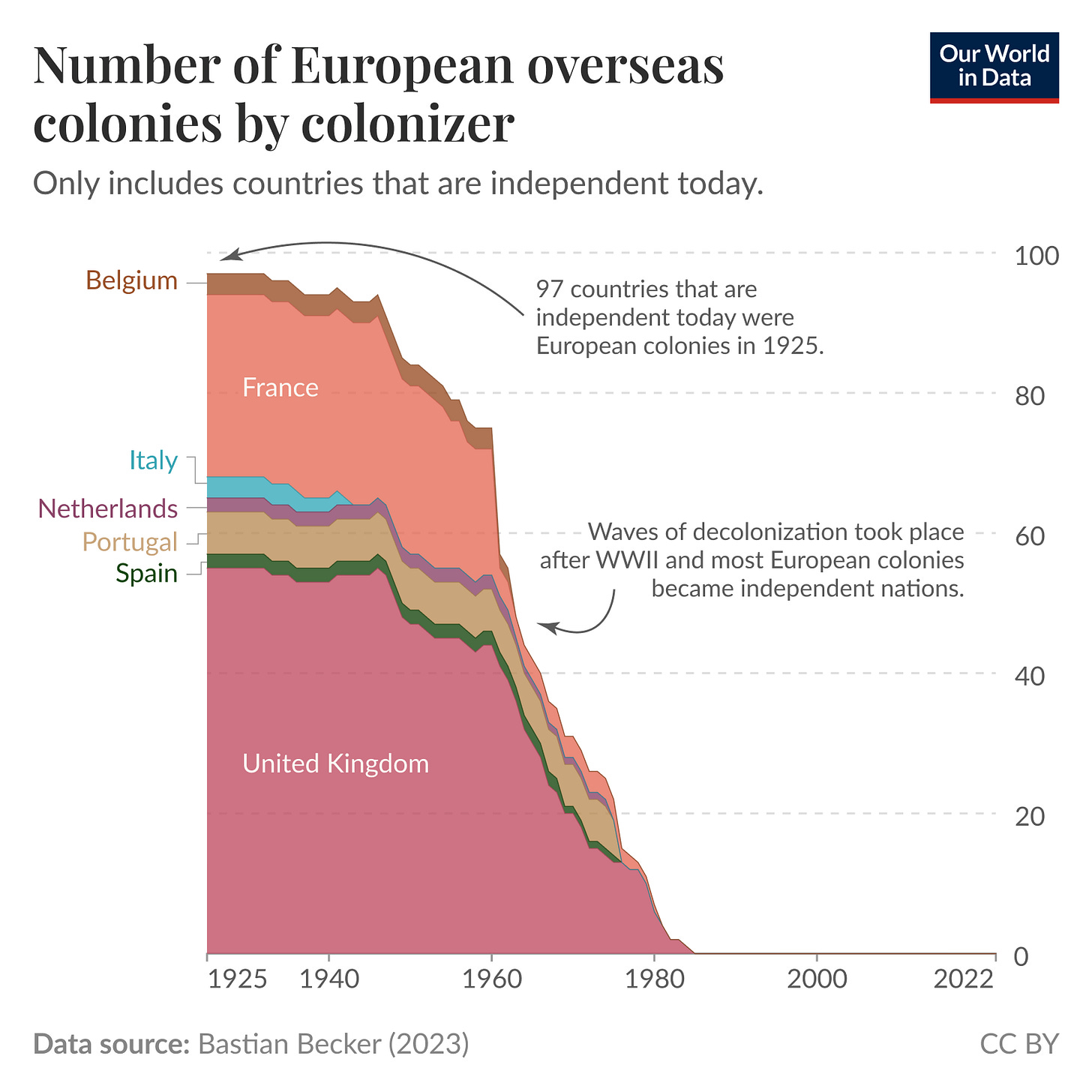The 274th Block: Comedy, infowars, and shifting narrative
Plus, bad AI
This week…
Your reading time is about 5 minutes. Let’s start.
I’m inhaling Kpop Demon Hunters for the second month straight like these girls inhale their cup noodles. Today I found out the creator, Maggie Kang, grew up in Toronto (and graduated from Sheridan College). AI could never. AI is Gwi-ma.
Your Wikipedia this week: Signs of AI writing
And now, a selection of top stories on my radar, a few personal recommendations, and the chart of the week.
ICYMI: The Previous Block was about the latest conspiracy, and press freedom.
CORRECTION NOTICE: None notified.MEME
The case for memes as a new form of comics
Jennifer Ouellette for Ars Technica:
It’s undeniable that the rise of the Internet had a profound impact on cartooning as a profession, giving cartoonists both new tools and a new publishing and/or distribution medium. Online culture also spawned the emergence of viral memes in the late 1990s. Michelle Ann Abate, an education professor at The Ohio State University, argues in a paper published in INKS: The Journal of the Comics Studies Society, that memes — specifically, image macros — represent a new type of digital comic, right down to the cognitive and creative ways in which they operate.
“One of my areas of specialty has been graphic novels and comics,” Abate told Ars. “I’ve published multiple books on various aspects of comics history and various titles: everything from Charles Schulz’s Peanuts to The Far Side, to Little Lulu to Ziggy to The Family Circus. So I’ve been working on comics as part of the genres and texts and time periods that I look at for many years now.”
Her most recent book is 2024’s Singular Sensations: A Cultural History of One-Panel Comics in the United States, which Abate was researching when the COVID-19 pandemic hit in 2020. “I was reading a lot of single panel comics and sharing them with friends during the pandemic, and memes were something we were always sharing, too,” Abate said. “It occurred to me one day that there isn’t a whole lot of difference between the single panel comics I’m sharing and the memes. In terms of how they function, how they operate, the connection of the verbal and the visual, there’s more continuity than there is difference.”
Loosely linked:
From ‘God Emperor Trump’ to ‘St. Luigi,’ memes power the politics of feeling by Stuart J. Murray (Carleton University) for The Conversation.
Jess Glynne calls White House deportation video with Jet2 song ‘sick’ by Yasmin Rufo for BBC.
INFOWAR
The questionable experts with the Global Fact-Checking Network, Russia’s verification organisation
Corentin Bainier and Nathan Gallo for France24:
At first glance, GFCN seems to resemble a fact-checking organisation like IFCN: the network has, for example, a “code of responsible fact-checking", which includes values like objectivity and impartiality and the use of verified data. Since early June, it has also offered courses on fact-checking techniques as well as an "international contest" to help people learn to better detect AI-generated videos.
However, critics of GFCN say that the organisations behind it aren’t necessarily poster children for these values. GFCN was cofounded by the Russian state press agency TASS, the New Media School – a government-run training programme for Russian journalists – and the NGO Ano Dialog.
A number of specialists and Western governments have described this NGO, which is currently under US sanctions, as being closely linked to the Kremlin – as well as a number of different disinformation operations. Its director general, Vladimir Tabak, who has been placed under sanctions by a number of Western countries, is now president of GFCN as well.
Maxime Audinet and Colin Gérard, researchers specialised in Russian influence, say that Tabak is one of the main actors in the disinformation operation Doppelgänger, which creates fake websites that resemble Western news outlets to share false information.
Loosely linked:
As the Gaza narrative shifts against Israel, The New York Times lives under a microscope by Max Tani for Semafor.
Information as ammunition: How the Thai-Cambodian border clash became a cyberwar by Surachanee Sriyai for Fulcrum.
AI
Meta brought AI to rural Colombia. Now students are failing exams
Laura Rodríguez Salamanca for Rest of World:
ChatGPT, OpenAI’s pioneering generative AI chatbot, is dominant in the U.S., but for many students in Colombia, Meta’s AI upgrades have become the go-to bots. Meta has a controversial agreement with telecommunications companies that restricts some users on cheaper data plans to using specific apps and sites including those from Meta.
Intencipa and other teachers in Colombia are concerned their students will lose years of basic education, as traditional teaching methods are no longer effective.
“Here, Facebook is the king,” Luisa Cárdenas, a social sciences teacher in Quimbaya, in Colombia’s coffee region, told Rest of World. Her students “simply copy what comes up in the chat, but they’re not capable of analyzing what they’re replicating.”
Some even graduate without mastering how to read and write, she said.
Even before this powerful cheating tool arrived, Colombia was facing enormous educational challenges.
Only 54 out of every 100 students complete high school, and of those, just 11 reach acceptable levels in critical reading, mathematics, and natural sciences, according to the Educational Realities Observatory at Icesi University.
Colombian students ranked the worst in creative thinking among countries assessed by the Organisation for Economic Co-operation and Development’s Programme for International Student Assessment.
Loosely linked:
How Latam-GPT is building culturally relevant AI for the region by David Feliba for Context.
ChatGPT launches study mode to encourage ‘responsible’ academic use by Dan Milmo for The Guardian.
“It’s a feature, not a bug” – How journalists can spot and mitigate AI bias by Ramaa Sharma for RISJ.
He asked a chatbot how to start a pandemic. It answered by Kyle Hiebert for The Walrus.
Other curious links, including en español et français
LONG READ | Musk, a social media powerhouse, boosts fortunes of hard-right figures in Europe by Erika Kinetz and Aaron Kessler for AP.
INFOGRAPHIC | Former Indian MP terror trial was largely conducted in her absence by Shalaka Shinde for Bellingcat.
PHOTO ESSAY | The game is almost over for one of Hong Kong’s last mahjong carvers by Kathleen Magramo, photos and video by Noemi Cassanelli for CNN.
North Korea sent me abroad to be a secret IT worker. My wages funded the regime by Beth Godwin and Julie Yoonnyung Lee for BBC.
Esta es la nueva moda para ser atractivo: el ‘performative reading’ (o fingir leer clásicos) por Ada Nuño en El Confidencial.
Bukele consolida su espiral autoritaria con carta blanca para perpetuarse en el poder: “Es el manual del dictador” por Carmen Quintela en elDiario.es.
Nosotras, las invisibles por Laura Panqueva Otálora en Gatopardo.
Au fait, qu’est devenue la « robolution » ? par Blaise Mao dans Usbek & Rica.
Les Studios Ghibli et Reporters sans frontières ensemble pour défendre la liberté de la presse par Graziella Polledri dans Le Figaro.
Le fait émergent, ou (re)penser ce qui fait le fait par Laurence Dierickx dans Méta-Media.
What I read, listen, and watch
I’m reading The Death of Expertise (2017) by Thomas M. Nichols. Have you ever read a book by a Republican, found yourself agreeing a little bit too much with them, so you looked them up on the Internet only to find out they have left the Republican Party? Well…
I’m listening to On The Media about the shifting Gaza coverage, and the forgotten history of sitcom.
I’m watching The Oath, a piece by The Guardian about being a Palestinian doctor in Israel’s healthcare system.
Chart of the week
Our World in Data’s Saloni Dattani and Herre Bastian showed how a century ago, around half of today’s independent countries were European.




